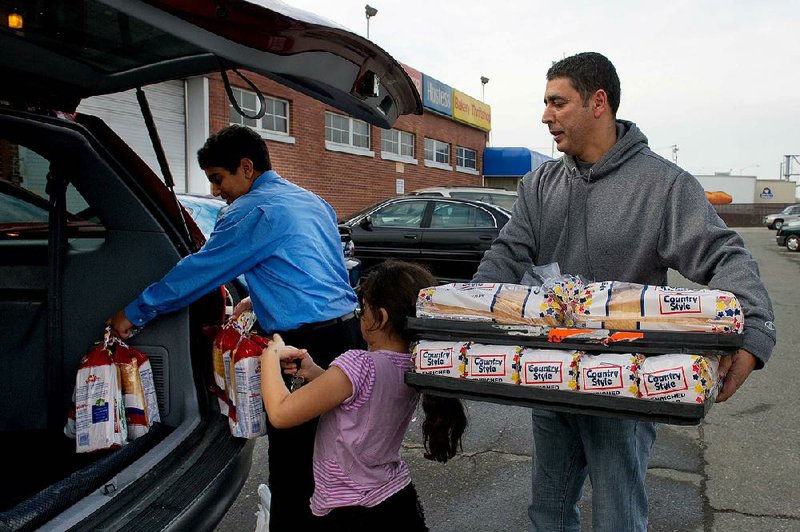LITTLE ROCK — The judge who is overseeing Hostess Brands Inc.’s bankruptcy declined to approve the company’s liquidation Monday and asked management and the baker’s union to go into mediation today to explain the strike that the maker of Twinkies and Wonder Bread said forced it to shut down.
There are “serious questions as to the logic behind the decision to strike,” U.S. Bankruptcy Judge Robert Drain said at a hearing in White Plains, N.Y. He urged the company and the union to enter mediation, citing the potential loss of more than 18,000 jobs.
“I believe that mediation really only works if the parties are willing to do it, but I’m also strongly suggesting that the parties should be willing to do it,” Drain told lawyers for the company and its bakers’ union. “To me not to have gone through that step leaves a huge question mark over this case which I think will only be answered in litigation.”
Hostess hasn’t spoken with the union since August, a company lawyer said. Hostess is seeking permission from Drain to pay bonuses to key managers while it closes operations that will leave most of its 18,500 workers unemployed as its begins a liquidation that may attract bids from private equity firms and rivals.
Hostess said Friday that it would shut down, claiming that a week-long strike by the bakers’ union forced liquidation. The union blamed management’s concession demands, while some employees blamed both sides.Strikers were still outside the company’s facilities Monday, Hostess’ lawyers said.
Drain said courts have established that the law doesn’t prevent monetary claims against a union for a strike that’s unlawful or improper. Discovery may bring out what was said to Hostess’s competitors and prospective buyers, he said.
“A decision in essence to accept the termination of 6,000 jobs and what appears to me the inevitable reduction of recoveries at least raises is-sues as to why it was made, particularly when there was no attempt made to contest the terms that were imposed,” Drain said.
“I’m giving the union as well as the debtors and their lenders a last chance to try and work those issues out in private,” the judge said. “If they don’t take it, it’s not as if they won’t be worked out. They will be worked out but they will be worked out in public and I believe ultimately in an expensive way.”
Tom Becker, a spokesman for Hostess, didn’t immediately return voice and e-mail messages seeking comment on the mediation.
The U.S. trustee, a Justice Department official responsible for protecting creditors, asked Drain on Monday to take control of the liquidation away from the company. U.S. Trustee Tracy Hope Davis asked the judge to convert the case to a Chapter 7 from Chapter 11 bankruptcy, based partly on the company’s intent to pay bonuses, and appoint a trustee to supervise the wind down.
Hostess officials “have not demonstrated that the insider bonuses are permissible,” Davis wrote in a court filing. They also “improperly seek to exculpate and indemnify their management from past and future liabilities” and want to “cherry-pick which administrative claims get paid.”
In seeking court permission for its demise, Hostess said it wants to pay as much as $1.75 million in incentive bonuses to 19 senior managers during the liquidation. Hostess is asking the judge to approve its plan - which would result in the firing of thousands of employees - to shut down 36 bakeries, 242 depots, 216 retail stores and 311 hybrid depot-store facilities, according to court filings. There are 58 other leased or owned sites used for storage, warehousing of products or parking.
The process requires “intensive” planning, staffing and funding, the company said. A fire-sale liquidation would damage equipment and result in improper disposal of waste materials.
It’s “not a simple matter of turning off the lights and shutting the doors,” Hostess said in court papers.
The baker estimated that shutting the plants will cost $17.6 million in the next three months. The plants have about $29 million worth of excess product ingredients, Hostess said.
About $6.9 million will be spent to close depots, while $8.8 million will be used to idle retail stores and $8.1 million will go to shutting corporate offices, according to a court filing. Perishable baked goods at retail stores will be sold at going-out-of-business sales, donated to charity or destroyed, Hostess said.
Information for this article was contributed by Phil Milford and Sophia Pearson of Bloomberg News.
Business, Pages 23 on 11/20/2012

